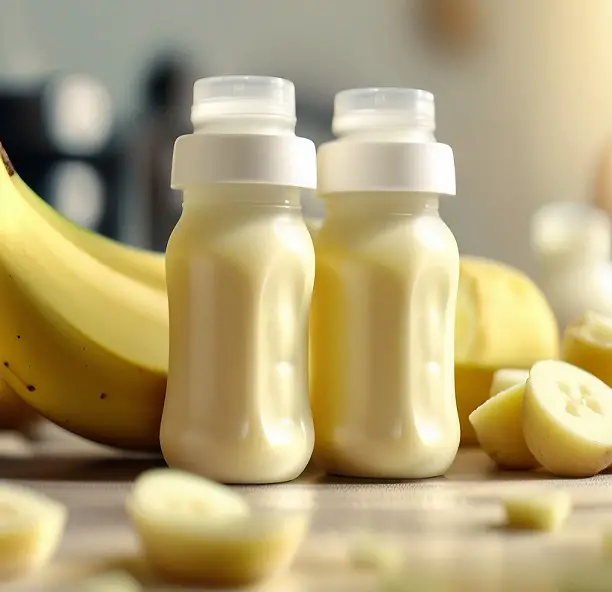When it comes to feeding your baby, choosing the right formula can be overwhelming. With so many options on the market, it can be difficult to know where to start. If you’re looking for the best baby formula without vegetable oil, you’ve come to the right place.
Vegetable oil is a common ingredient in many baby formulas, but it’s not always the healthiest option. Some parents prefer to avoid vegetable oil due to potential health risks and concerns. Fortunately, there are plenty of healthy alternatives available.
In this article, we’ll explore the best baby formula without vegetable oil, along with other relevant keywords such as baby formula without palm oil, baby formula without coconut oil, organic baby formula, and non-GMO baby formula. So, whether you’re a new parent or simply looking for a healthier option for your little one, we’ve got you covered.

Why Avoid Vegetable Oil in Baby Formula?
While vegetable oil is commonly used in baby formula as a source of fat, there are concerns about its potential health risks. Vegetable oil is often highly processed and may contain harmful chemicals such as solvents and pesticides. Additionally, some vegetable oils, such as palm oil and coconut oil, are high in saturated fats that can contribute to health problems like obesity and heart disease.
Studies have also linked vegetable oil consumption with a range of health issues, including inflammation, digestive problems, and poor liver function. For these reasons, many parents opt to choose baby formulas that do not contain vegetable oil.
Why is avoiding vegetable oil important for babies?
Babies have delicate digestive systems that are still developing, and their bodies may not be able to process certain ingredients as effectively as adults. Vegetable oil in baby formula, especially when it is highly processed or contains harmful chemicals, can put added stress on a baby’s digestive system and potentially lead to health problems.
Furthermore, the type of fat in a baby’s diet is critical for their growth and development. Saturated fats like those found in some vegetable oils can be harmful to a baby’s health, while healthy fats like those found in fish and nuts are essential for optimal brain development.
What to Look for in Baby Formula Without Vegetable Oil
When searching for baby formula without vegetable oil, it’s important to consider the types of healthy fats included in the formula. Look for options that contain sources of DHA and ARA, which are essential for optimal brain and eye development. These healthy fats are often derived from algae and fungi and can be found in many non-vegetable oil-based baby formulas.
Additionally, it’s important to choose a formula that is easy for your baby to digest. Some babies may have trouble with certain proteins or ingredients, so it may be necessary to try a few different options before finding the right one.
If your baby has specific health concerns, such as constipation or a sensitivity to lactose, there are specialized formulas available that can address those issues. Look for formulas that contain probiotics or prebiotics to support healthy digestion and promote regular bowel movements.
| Healthy Fats to Look for in Baby Formula: | Formula Options for Specific Health Concerns: |
|---|---|
|
|
Ultimately, the best baby formula without vegetable oil will depend on your baby’s individual needs and preferences. It may take some trial and error to find the right option, but with the right guidance and information, you can make an informed decision that supports your baby’s health and well-being.
Top Picks for Baby Formula Without Vegetable Oil
If you are looking for a baby formula without vegetable oil, there are plenty of options available on the market. We have put together a list of our top picks to help you make an informed decision for your little one.
| Brand | Features | Price |
|---|---|---|
| HiPP Organic | Contains organic lactose and whey, prebiotics, and essential Omega-3 and Omega-6 fatty acids. No artificial preservatives or GMOs. | $ |
| Earth’s Best Organic | Contains organic lactose, DHA and ARA for brain and eye development, and prebiotics for digestive health. No artificial flavors, colors or preservatives. | $$ |
| Similac Pro-Advance Non-GMO | Non-GMO formula with 2′-FL HMO for immune support, as well as DHA, Lutein, and Vitamin E for brain and eye development. No artificial sweeteners or colors. | $$$ |
For sensitive babies, we recommend trying Nutramigen by Enfamil or Gerber’s SoothePro formula. Both are specifically designed to soothe and reduce colic symptoms. If your baby is experiencing constipation, we suggest trying Enfamil’s Reguline formula, which contains a blend of prebiotics to support soft, comfortable stools.
For bone health, we recommend looking for baby formula that contains Vitamin D and Calcium, such as Enfamil’s NeuroPro Gentlease or Baby’s Only Organic LactoRelief.
Remember, every baby is unique and may have different needs when it comes to baby formula. It’s important to work with your pediatrician to determine the best option for your little one.
Organic and Non-GMO Baby Formula Without Vegetable Oil

Choosing organic and non-GMO baby formula without vegetable oil can provide peace of mind for parents who are concerned about the potential health risks associated with conventional baby formula. Organic baby formula is made with organic ingredients that are grown without the use of synthetic pesticides or fertilizers.
Non-GMO baby formula is made with ingredients that have not been genetically modified. This means that the formula does not contain genetically modified organisms, which some studies suggest may be harmful to human health.
When choosing organic and non-GMO baby formula without vegetable oil, parents can feel confident that they are providing their baby with a safe and healthy option. These formulas often contain high-quality ingredients, including healthy fats like omega-3 and omega-6 fatty acids, which are essential for brain and eye development.
Homemade Baby Formula Without Vegetable Oil
For parents who prefer to make their baby’s formula at home, there are homemade options without vegetable oil. Making your own formula ensures that you know exactly what goes into your baby’s food, and can be a great alternative for those with dietary restrictions or concerns about store-bought formula.
Here is a recipe for homemade baby formula without vegetable oil:
| Ingredients | Measurement |
|---|---|
| Filtered Water | 24 ounces |
| Organic Whole Milk | 2 cups |
| Organic Lactose | 1/4 cup |
| Unflavored Liquid Whey Protein | 1 tablespoon |
| Organic Virgin Coconut Oil | 2 teaspoons |
| Organic Extra Virgin Olive Oil | 1/4 teaspoon |
| Organic Unrefined Sunflower Oil | 1 teaspoon |
| Organic Nutritional Yeast Flakes | 1/4 teaspoon |
| Organic Acerola Powder | 1/4 teaspoon |
| Organic Olive Oil | 1 teaspoon |
Instructions:
- Combine filtered water and organic whole milk in a blender and mix on high speed for 5 seconds.
- While the blender is running, add the remaining ingredients and continue blending for another 5 seconds.
- Store the formula in the refrigerator for up to 48 hours.
Note: It is important to consult a pediatrician before making your own baby formula. This recipe is not suitable for all babies, especially those with specific dietary needs or medical conditions.
How to Switch to Baby Formula Without Vegetable Oil
Switching baby formula can be a daunting task for parents, but it doesn’t have to be. Here are some tips and advice for transitioning your baby to a formula without vegetable oil:
- Consult with your pediatrician: Before making any changes to your baby’s diet, it’s important to talk to your pediatrician. They can give you advice on the best baby formulas without vegetable oil and guide you on how to switch.
- Introduce the new formula gradually: Start by mixing a small amount of the new formula with the old formula. Gradually increase the amount of the new formula over several days until your baby is fully transitioned.
- Observe your baby: Pay attention to how your baby reacts to the new formula without vegetable oil. If they experience any discomfort or adverse reactions, consult your pediatrician.
- Be patient: It may take some time for your baby to get used to the new formula. Don’t give up too soon, as it can take up to two weeks for your baby to fully adjust.
- Stick to a routine: Try to maintain your baby’s feeding schedule as much as possible during the transition. This will help them feel more comfortable and secure with the change.
Remember, switching to a baby formula without vegetable oil can have significant health benefits for your little one. With a little patience and guidance from your pediatrician, the transition can be a success.
Common Concerns and Side Effects of Baby Formula Without Vegetable Oil
Parents often have concerns and questions about switching to baby formula without vegetable oil. Here are some common concerns and side effects to be aware of:
Concerns:
- Will my baby get enough healthy fats? Yes, there are healthy fats in baby formula without vegetable oil such as coconut oil, sunflower oil, and palm olein oil. Look for formulas that contain these ingredients.
- Is it safe for my baby? Yes, baby formula without vegetable oil is safe. Just be sure to follow the instructions on the packaging carefully and choose a reputable brand.
- Will my baby like the taste? Every baby is different, and it may take some time for your baby to adjust to the new taste. Try a small amount at first and gradually increase the amount over time.
Side Effects:
While switching to baby formula without vegetable oil is generally safe, there may be some side effects to be aware of:
| Side Effect | Possible Cause | Solution |
|---|---|---|
| Constipation | The new formula may have less fiber than the previous formula. | Offer your baby more water and try a different formula with added prebiotics and probiotics. |
| Diarrhea | Your baby’s digestive system may need time to adjust to the new formula. | Try a small amount at first and gradually increase the amount over time. |
| Gas and Bloating | The new formula may contain different types of proteins or carbohydrates. | Try a different formula or offer smaller, more frequent feedings. |
Remember, every baby is different and may have different reactions. If you have concerns about your baby’s health or well-being, consult with your pediatrician.
FAQ: Baby Formula Without Vegetable Oil
As a parent, it’s natural to have doubts and questions about your baby’s diet. Here are some frequently asked questions related to baby formula without vegetable oil:
1. What healthy fats should I look for in baby formula?
Healthy fats are an essential component of baby formula. Look for options that contain fatty acids such as DHA and ARA, which promote brain and eye development. Other beneficial fats include omega-3 and omega-6 fatty acids, which support overall growth and development.
2. Is organic baby formula without vegetable oil a better option?
Organic baby formula is made from milk from cows raised without hormones or antibiotics, and without the use of pesticides or synthetic fertilizers in the surrounding land. Organic options are generally considered a safer and better option, although it’s important to check the ingredients label for any potential allergens or other additives.
3. What is non-GMO baby formula without vegetable oil?
Non-GMO baby formula is made from milk from cows that have not been genetically modified. It is a safer option for parents looking to avoid GMOs in their baby’s diet. Make sure to check the ingredients label for any other potential additives or allergens.
4. Are there any side effects of using baby formula without vegetable oil?
In some cases, switching to baby formula without vegetable oil may cause constipation or other digestive issues in babies. If you notice any unusual symptoms or side effects, it’s best to consult your pediatrician.
5. How can I transition my baby to a new formula?
If you’re switching to baby formula without vegetable oil, it’s important to do so gradually. Start by replacing one feeding per day with the new formula and gradually increase the amount over time. This will give your baby’s digestive system time to adjust.
6. Can I make my own baby formula without vegetable oil?
Yes, it is possible to make your own baby formula without vegetable oil. However, it’s important to consult with your pediatrician and to use a recipe that is specifically designed for infants. Homemade formulas may not provide all of the necessary nutrients, so it’s important to ensure that your baby is getting a well-balanced diet.
By choosing baby formula without vegetable oil, you can provide your baby with a safer and healthier option. As always, consult with your pediatrician and do your research to find the best option for your little one.








